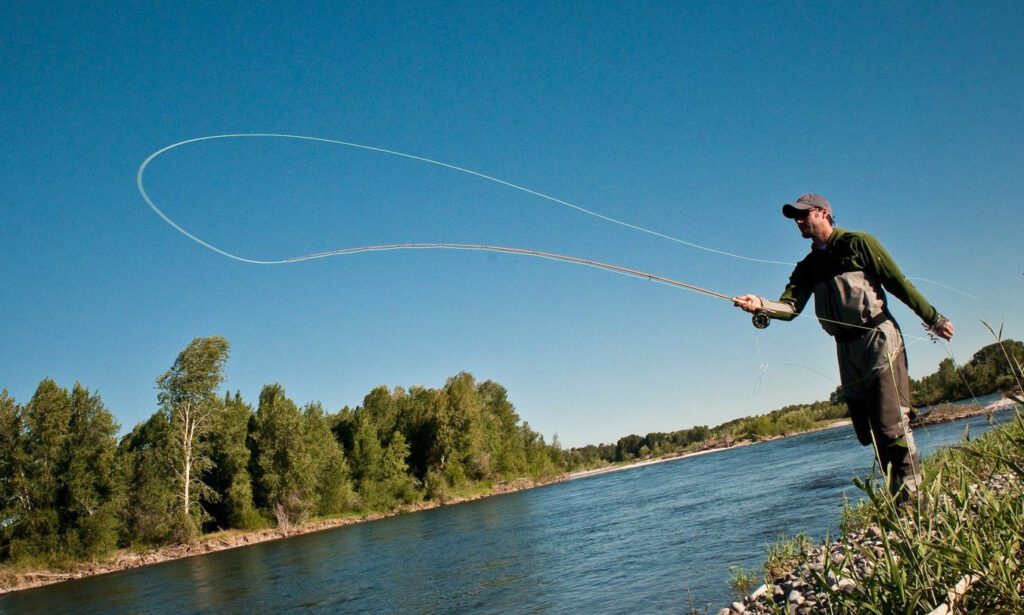
If you hunt or fish, you’ll find there are some activities that are more highly revered than others, at least they are by zealots of the sport. Take quail hunting, for example. While quail in our part of the country have basically gone the way of the Studebaker, there are those who still keep a brace of pointers and seek out those widely scattered pockets of cover that may hold a covey or two. Why? Because quail hunting is so special to them; they just can’t entertain thoughts that quail numbers continue to shrink.
Then there are the fly fishermen. The average angler heads for the lake or the creek bank armed with rods and reels, or a cane pole and bucket of worms. While some rod and reelers and cane polers have perfected their craft to a fine edge, the average fisherman just wants to catch supper, and the gear he selects is what he feels will allow him to do that most effectively.
Ah, but the fly fisherman is a far different creature. He’s probably more of a purist; a perfectionist, than any other sportsman. He talks in almost reverential tones of tippets and Royal Coachmen and such. He ties his own flies; builds his own rods. It’s as if the process of preparing to fly fish is an end in itself.
I once tried fly fishing, but I soon learned that I lack something in the “purist” category. I purchased my outfit years ago at the local discount store for $29.95. No, that was not the price of the fly line; that was the package price for rod, reel, line, leader and a box of flies. I took my purchase to a local pond where I’d located a bed of bluegills in the shallows. I managed to catch a few fish but I spent an inordinate amount of time getting my popping bug untangled from the myrtle bush behind me. I also noticed a lack of dexterity when it came to making “the cast”. I almost threw out my shoulder trying to emulate the fly fishers I’d watched on TV. While they made it look so easy, I spent most of my fishing time tripping over line wrapped around my ankles and getting a half-hitch from around my ear.
While on a turkey hunting trip to South Dakota several years ago, I spent some time with Dick Leir, owner of Dakota Angler and Outfitter and as he drove me alongside the sparkling-clear streams in the Black Hills, he talked about his favorite sport, fly fishing.
“Fly fishing can be frustrating, but once you get over the initial aggravation, it is a calming sport,” Leir explained. “There is an evolution that takes place in the life of a fly fisher. At first, his goal is to catch ‘a’ fish. Once he accomplishes this, he wants to catch a ‘lot’ of fish. Then he progresses to wanting to catch a ‘big’ fish; then a ‘lot of big’ fish. He arrives as a genuine fly fisher when his consuming desire is to catch ‘that’ fish.
“Fly fishing is unique in that it is one of the few do-it-yourself sports. Anglers get a lot of satisfaction from painstakingly building their own rods and becoming adept at tying their own flies. To catch ‘that’ fish on a rod you have built with a fly you have tied offers the utmost satisfaction,” said Leir.
According to Leir, trout fishermen don’t go to a stream with the purpose of catching fish to eat.
“The object is not to catch ‘supper’. Wild trout are much too valuable for that. A legendary fly fisherman, the late Lee Wulfe once said, ‘a trout is too valuable a commodity to catch only once.’
While wild trout are the number one quarry of most fly fishers, practically any species of fish can be caught on a flyrod. We don’t have trout in Louisiana, but there are other fish that can provide great sport for the flyrodder. Bedded bluegills, like I attempted to catch, bass and crappie are all amenable to being caught on fly tackle.
As advanced age has caught up with me, I have laid aside my fly rod and casting rod and settle for a seat in a comfortable chair on the bank of a pond with bedded bluegills swirling the water just off shore. Skewering on a cricket and lobbing it into the mass of bream, I’m as happy as a fly fisherman wading a clear mountain stream for trout.
 fgazette.com Community news site for Union Parish Louisiana
fgazette.com Community news site for Union Parish Louisiana